The Revolution Will Not Be Televised (Spanish: La revolución no será transmitida), also known as Chávez: Inside the Coup, is a 2003 documentary focusing on events in Venezuela leading up to and during the April 2002 coup d'état attempt, which saw President Hugo Chávez removed from office for two days. With particular emphasis on the role played by Venezuela's private media, the film examines several key incidents: the protest march and subsequent violence that provided the impetus for Chávez's ousting; the opposition's formation of an interim government headed by business leader Pedro Carmona; and the Carmona administration's collapse, which paved the way for Chávez's return. The Revolution Will Not Be Televised was directed by Irish filmmakers Kim Bartley and Donnacha Ó Briain. Given direct access to Chávez, the filmmakers intended to make a fly-on-the-wall biography of the president. They spent seven months filming in Venezuela, following Chávez and his staff and interviewing ordinary citizens. As the coup unfolded on 11 April, Bartley and Ó Briain filmed on the streets of the capital, Caracas, capturing footage of protesters and the erupting violence. Later, they filmed many of the political upheavals inside Miraflores, the presidential palace.
| The Revolution Will Not Be Televised | |
|---|---|
Theatrical release poster | |
| Directed by | Kim Bartley Donnacha Ó Briain |
| Produced by | David Power |
| Starring | Hugo Chávez Pedro Carmona Jesse Helms Colin Powell George Tenet |
| Narrated by | Donnacha Ó Briain |
| Cinematography | Kim Bartley Donnacha Ó Briain |
| Edited by | Ángel Hernández Zoido |
Production company | Power Pictures |
| Distributed by | Vitagraph Films (US) |
Release date |
|
Running time | Chavez: Inside the Coup 52 minutes The Revolution Will Not Be Televised 74 minutes |
| Country | Ireland |
| Language | English Spanish |
| Budget | €200,000 |
| Box office | $200,000 (€171,000) |
Bartley and Ó Briain conceived of the film after Bartley returned from documenting the aftermath of the 1999 Vargas mudslides for an Irish charity. Following a visit to Venezuela to determine the feasibility of a film project, the pair formed a production company and applied to Ireland's film board, Bord Scannán na hÉireann (BSÉ), for a development grant. At BSÉ's request, the filmmakers partnered with a more experienced producer and shot a short pilot to show to potential investors. Funding for the €200,000 production was provided by BSÉ and several European broadcasters. Bartley and Ó Briain shot more than 200 hours of material; editing focused on identifying footage that would make the film entertaining and drive the plot. It was at this stage that the film's coverage narrowed to concentrate more on the coup attempt.
The film was positively received by mainstream film critics and won several awards. Reviewers cited the filmmakers' unprecedented proximity to key events and praised the film for its "riveting narrative"; criticism focused on its lack of context and pro-Chávez bias. First shown on television in Europe and Venezuela in 2003, The Revolution Will Not Be Televised later appeared at film festivals and secured a limited theatrical release on the art house circuit. Independent activists held unofficial screenings, and Venezuelan government officials encouraged its circulation to build support for Chávez's administration. The film is regularly shown on Venezuelan television, and in the capital it is often broadcast during "contentious political conjunctures". The Revolution Will Not Be Televised paints Chávez in a favorable light, which has led to disputes over its neutrality and accuracy; particular attention is paid to its framing of the violence of 11–13 April, the filmmakers' editing of the timeline, and the alleged omission of incidents and personnel. The film is variously cited as an accurate portrayal or a misrepresentation of the events of April 2002.
Screenplay
Throughout much of the twentieth century, Venezuela was beset by political, civil and military unrest. After Juan Vicente Gómez's long reign as president ended in 1935, a series of military rulers followed, concluding with Marcos Pérez Jiménez's overthrow by general uprising in 1958. Although the military remained influential, Venezuela's government has since been chosen by civilians through democratic processes. Until 1998, the dominant political parties were Acción Democrática and COPEI, who shared seven presidencies between them. In 1989, during the second term in office for Acción Democrática's Carlos Andrés Pérez, Venezuela was hit by a severe economic crisis. A wave of protests known as the Caracazo engulfed the country and dozens were killed in rioting.
Hugo Chávez, then a Lieutenant Colonel in the army, had formed a secret revolutionary group (MBR-200) in the early 1980s and was planning a "rebellious intervention". He later felt the Caracazo was a missed opportunity for his movement. Three years later, Chávez saw another chance; in February 1992, he led an unsuccessful military coup d'état and was imprisoned. A second coup attempt, without his involvement, also failed. Chávez enjoyed some popular support for his actions. Released from prison in 1994, he recast his revolutionary group as a legitimate socialist political party, the Fifth Republic Movement. The movement adopted former Venezuelan leader Simón Bolívar as its "iconic hero" and "reference point"; Bolívar had played a key role in Latin America's successful struggle for independence from Spain in the 1820s. In the 1998 presidential election, Chávez won 56.2% of the vote, on a promise to "end the corruption of several decades" and institute a new Bolivarian Revolution that he felt would secure Latin America's true independence from the outside world.
Chávez strengthened his support among the poor with a series of social initiatives known as the Bolivarian Missions, and created a network of grass-roots workers' councils, the Bolivarian Circles. Nevertheless, by early 2002, Venezuela was "embroiled ... in a severe political crisis" as Chávez sought to bring more of the country's vast oil wealth under state control. Although the state-owned radio and television stations remained staunch advocates of Chávez's stated policies—to redistribute the nation's wealth to the poorest—the private media was more hostile. The crisis reached a head when Chávez attempted to remove the management of the state oil company, Petróleos de Venezuela (PDVSA), provoking a showdown. "Oil managers, business leaders, and large segments of organized labor" called a general strike. The strike was backed by a large segment of the population, "particularly the country's increasingly impoverished middle class" and army officers upset at the increasing politicization of the military.
On 11 April 2002, hundreds of thousands of people marched in protest against the government. Abandoning their planned route, the marchers advanced towards the palace, a path that took them close to government supporters who had come out in opposition to the protest. Journalist Phil Gunson wrote, "Shooting broke out on all sides. A score of civilians died and more than 150 suffered gunshot wounds. The military high command called for Chávez to resign, and at 3:20 the next morning they announced he had agreed to do so. The presidency was assumed by a business leader, Pedro Carmona Estanga, but his government collapsed in less than forty-eight hours and Chávez returned to power."
The Revolution Will Not Be Televised opens in 2001 with footage of Chávez as he tours the country. Met with "popular enthusiasm", he speaks at rallies, decrying neoliberalism and the international community's attacks on his character. The film outlines Chávez's rise to power, before covering his day-to-day routine and appearances on his television show, Aló Presidente, which includes a phone-in for citizens to speak with the president. Chávez outlines his aspiration to be seen as a modern-day Bolívar. Clips from Venezuelan and United States news reports demonstrate a "relentless campaign" against the president.
Interviews with communities from both sides of the political divide indicate how Chávez is seen by the rich and poor. The latter support his stated aim to redistribute the country's oil wealth; the former fear totalitarianism and are worried Chávez will institute communism. In February 2002, the media war intensifies after Chavez takes control of PDVSA. The film states that the company was previously run as a private interest for the benefit of a minority, despite being state-owned. Business leader Pedro Carmona and union boss Carlos Ortega are the main voices of the opposition. After the pair visit Washington, D.C., the CIA and the State Department express concern about Chávez's rule and stress the importance of Venezuela's oil. A Venezuelan general appears on private television to voice similar disquiet. Carmona appeals for a public protest at the offices of PDVSA.
On 11 April, opposition protesters begin their march outside PDVSA's headquarters in Caracas; Chávez's supporters gather outside the presidential palace. The protest route is changed to take it to the palace; shots ring out and civilians are killed. The private media blames Chávez's supporters, citing footage that shows them shooting at opposition protesters from a bridge. The narration states, "What the TV stations didn't broadcast was , which clearly shows that the streets below were empty. The opposition march had never taken that route." Later, the state television signal is cut; rumors circulate that the opposition has taken over the studio. At the palace, members of the military high command demand Chávez's resignation, threatening to bomb the building. The president refuses to resign, but submits to their custody. He is led away, and Carmona announces on television that a transitional government will be established.
On 12 April, opposition leaders appear on private television, where they disclose their plan to unseat Chávez. Carmona is sworn in as president while images play of unrest on the streets. Defying media censorship, Chávez's supporters disseminate the story that the president did not resign. On 13 April, they gather to protest outside Miraflores, while palace guards plot to retake the building. The guards take up key positions and, at a prearranged signal, take members of the new government prisoner. The state television channel is relaunched and urges the army to back Chávez. "Full military control" is returned to the Chávez administration and the president arrives at the palace amid celebratory scenes. Chávez makes an address in which he says it is fine to oppose him, but not the Constitution of Venezuela. The closing titles say Carmona fled to Miami while under house arrest, and that Ortega went into hiding, only reappearing to help lead the opposition after Chávez said there would be no repercussions. Most of the dissident generals, after being expelled from the army, fled to the US. Others remained as part of the opposition.
Development
In December 1999, independent Irish filmmaker Kim Bartley visited Venezuela as part of Concern Worldwide's emergency response team, to document the aftermath of the 1999 Vargas mudslides that had devastated much of Vargas State in the north of the country. Bartley become fascinated with how those affected by the tragedy perceived Chávez, and in late 2000, she and Donnacha Ó Briain—a filmmaker and former colleague who shared her interest in "Latin American politics and issues around globalization"—spent two weeks in Caracas to determine the feasibility of a film project. The pair formed a production company, Runway Films, and in January 2001 applied to Ireland's film board, Bord Scannán na hÉireann (BSÉ), for a development grant. Bartley and Ó Briain proposed a fly-on-the-wall documentary, a "per
Watch movie The Revolution Will Not Be Televised Film online on Amazon
Watch movie The Revolution Will Not Be Televised Film online
Watch The Movie On PrimeThe Train Full HD Movie Download

Shradhanjali Full HD Movie Download
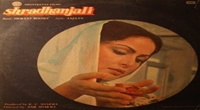
Atishbaaz Full HD Movie Download
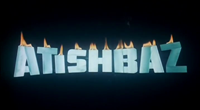
Film Hi Film Full HD Movie Download
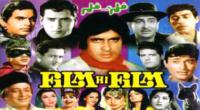
Karz Chukana Hai Full HD Movie Download
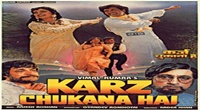
Bazaar (1982) Full HD Movie Download
.jpg)
Lajwanti (1958) Full HD Movie Download
.jpg)
Shaitan Mantrik Full HD Movie Download
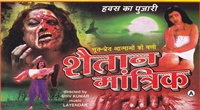
Modala Sala Full HD Movie Download
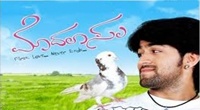
Donga Police Full HD Movie Download
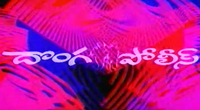
Har Raat Naya Khiladi Full HD Movie Download
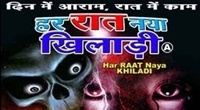
Doctor Babu Full HD Movie Download
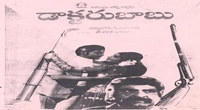
Swapna Lokam (1999) Full HD Movie Download
.jpg)
Mata Velankanni Full HD Movie Download
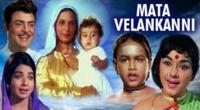
I Am Legend Full HD Movie Download

Dark Water Full HD Movie Download
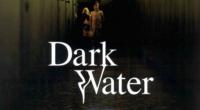
Manchal Nila Full HD Movie Download

Devi Putrudu Full HD Movie Download
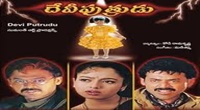
Ninaivellam Nithya Full HD Movie Download
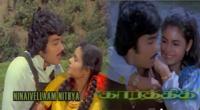
Kabul Express Full HD Movie Download
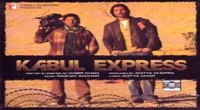
Badmaash Company Full HD Movie Download
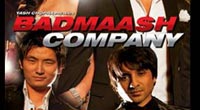
Download latest Movie from bollywood
- 1> baaghi 3
- 2> THE SKY IS PINK MOVIE FULL STORY AND REVIEW
- 3> Luka Chuppi
- 4> TO ALL THE BOYS I’VE LOVED BEFORE
- 5> Kabir Singh
- 6> Street Dancer 3D
- 7> Simmba
- 8> Gone Girl
- 9> The Girl Who Lived
- 10> Ludo
- 11> DILWALE DULHANIA LE JAYENGE
- 12> GUILTY
- 13> The Godfather
- 14> Adventures of Rusty
- 15> Sooryavanshi
- 16> Satyameva Jayate 2
- 17> Thappad
- 18> Bhool Bhulaiyaa 2
- 19> KGFChapter 2
- 20> Mardaani 2
- 21> Pinjar
- 22> Shivaji maharaj
- 23> Ek Villian 2
- 24> Hungama 2
- 25> Divergent
- 26> Mumbai Saga
- 27> The Internship
- 28> HIT (telugu)
- 29> Panga
- 30> The perfect date
- 31> 16 December
- 32> Gopala Gopala (Telugu)
- 33> Brahmastra
- 34> Gangubai Kathiawadi
- 35> Manmadhudu
- 36> Nenu local
- 37> Mahanati
- 38> Shatamanam bavathi
- 39> Lagaan
- 40> After
- 41> MOM
- 42> Shamshera
- 43> Raguvaran BTech
- 44> Khakee
- 45> The villain
- 46> OM
- 47> Mr. perfect
- 48> Bueatifull mind
- 49> Hichki
- 50> Gabbar Singh
- 51> Jogi
- 52> Before Sunrise
- 53> Before Sunset
- 54> Before Midnight
- 55> The Big Bull
- 56> Top Gun: Maverick
- 57> The Purge
- 58> The Sky is Pink
- 59> Laxmmi Bomb
- 60> Sadak 2
- 61> Sufna
- 62> Prithviraj
- 63> PK
- 64> Coolie No 1(2020)
- 65> Black Widow
- 66> Dear Zindagi
- 67> Dil Bechara
- 68> PHIR HERA PHERI
- 69> WAR
- 70> Dostana
- 71> RRR: Roudram Ranam Rudhiram
- 72> Maidan
- 73> Dabbang 3
- 74> Chhalaang
- 75> life as we know it
- 76> SherShaah
- 77> Sandeep Aur Pinky Faraar
- 78> Event Horizon
- 79> 83
- 80> Radhe: Your Most Wanted Bhai
- 81> Gunjan Saxena: The Kargil Girl
- 82> Mr India
- 83> Vivah
- 84> Anokha Bandhan
- 85> Ghost
- 86> Bhoot: Part One - The Haunted Ship
- 87> Haseen Dilruba
- 88> Laal Singh Chaddha
- 89> Qismat
- 90> Rajput
- 91> Drive
- 92> Dil Chahta Hai
- 93> Dil Ki Baazi
- 94> Dil Ka Rishta
- 95> Teesri Manzil
- 96> Dil
- 97> Love Aaj Kal
- 98> Khaali Peeli
- 99> Bunty Aur Babli 2
- 100> Atrangi Re
- 101> Gulabo Sitabo
- 102> Jodi
- 103> Suraj Pe Mangal Bhari
- 104> Deewana
- 105> Attack
- 106> Sardar Udham Singh
- 107> Toofan
- 108> THE LOVEBIRDS
- 109> Jersey
- 110> Ginny Weds Sunny
- 111> Thalaivi
- 112> Shiddat
- 113> Angels vs Zombies
- 114> Koi Mil Gya
- 115> Thank God
- 116> Bhuj: The Pride of India
- 117> Hum Aapke Hain Kaun
- 118> The Platform
- 119> Bird Box
- 120> Roohi Afzana
- 121> Torbaaz
- 122> Nikamma
- 123> World War Z
- 124> Extraction
- 125> Train to Busan
- 126> Life of Pi
- 127> SHAADI MEIN JROOR AANA
- 128> Himmat Aur Mehnat
- 129> To All The Boys: P.S. I Still Love You
- 130> Mimi
- 131> Good Newwz
- 132> Shubh Mangal Zyada Saavdhan
- 133> Raabta
- 134> Harry Potter and the Philosopher's Stone
- 135> Harry Potter and the Chamber of Secrets
- 136> Chhapaak
- 137> War of the Worlds
- 138> Harry Potter and the Prisoner of Azkaban
- 139> Harry Potter and the Goblet of Fire
- 140> MURDER MYSTERY
- 141> Shakuntala Devi
- 142> Bachchan Pandey
- 143> Jayeshbhai Jordar
- 144> Sheer Qorma
- 145> Saina
- 146> 'O' Pushpa I hate tears
- 147> Kedarnath
- 148> MS Dhoni The Untold Story
- 149> Chhichhore
- 150> Badhaai Ho
- 151> Unstoppable
- 152> Oz the Great And Powerful
- 153> The Girl on the Train
- 154> Haathi Mere Saathi 2020
- 155> The Conjuring: The Devil Made Me Do It
- 156> Gandhi Se Pehle Gandhi
- 157> The Song of Scorpions
- 158> Srimanthudu
- 159> Hello Guru Prema Kosame
- 160> Beauty and The Beast
- 161> Black Panther
- 162> Charlie and the Chocolate Factory
- 163> Bole Chudiyan
- 164> Fidaa
- 165> Duvvada Jagannadham
- 166> Bruce Lee: The Fighter
- 167> Hyper
- 168> Yaara
- 169> Red (2020)
- 170> Shivam
- 171> That Is Mahalakshmi
- 172> Nishabdham
- 173> Aashram 2020 web series
- 174> Laxmii
- 175> Mismatched
- 176> STUDENT OF THE YEAR 2
- 177> NAIL POLISH
- 178> Ramprasad Ki Tehrvi
- 179> KAAGAZ
- 180> 12 o Clock
- 181> The Power
- 182> bolo hau
- 183> Tribhanga
- 184> JAMUN
- 185> Madam Chief Minister
- 186> Maasaab
- 187> Aadhaar
- 188> Tanhaji
- 189> Bhaagi 3
- 190> Bhootnath
- 191> MALANG
- 192> Jai Mummy Di
- 193> Haathi Mere Saathi 2021
- 194> Shakeela
- 195> Unpaused
- 196> Annayya
- 197> Vamsoddharakudu
- 198> Mrugaraju
- 199> Narasimha Naidu
- 200> Sankranti
- 201> Manasu Maata Vinadhu
- 202> Anjaane
- 203> Apaharan
- 204> Bachke Rehna Re Baba
- 205> Bewafaa
- 206> Roohi
- 207> Radhe
- 208> Zindagi Khoobsoorat Hai
- 209> Yeh Mohabbat Hai
- 210> Yeh Kya Ho Raha Hai?
- 211> The Tomorrow War
- 212> DehradunDiary
- 213> Meri Shaadi Karaoo
- 214> Matruu Ki Bijlee Ka Mandola
- 215> No One Killed Jesica
- 216> Aag Ka Goola
- 217> Eight Million Dollars
- 218> Three Hundred
- 219> Cats and Dog
- 220> Decoy
- 221> Gold Rush
- 222> You Have Got Mail
- 223> Final Destination three
- 224> Tofan
- 225> Jungle
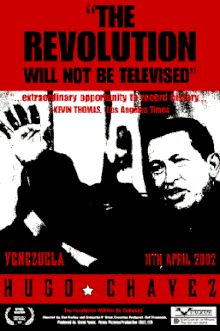 Story of movie The Revolution Will Not Be Televised Film :
Story of movie The Revolution Will Not Be Televised Film : 